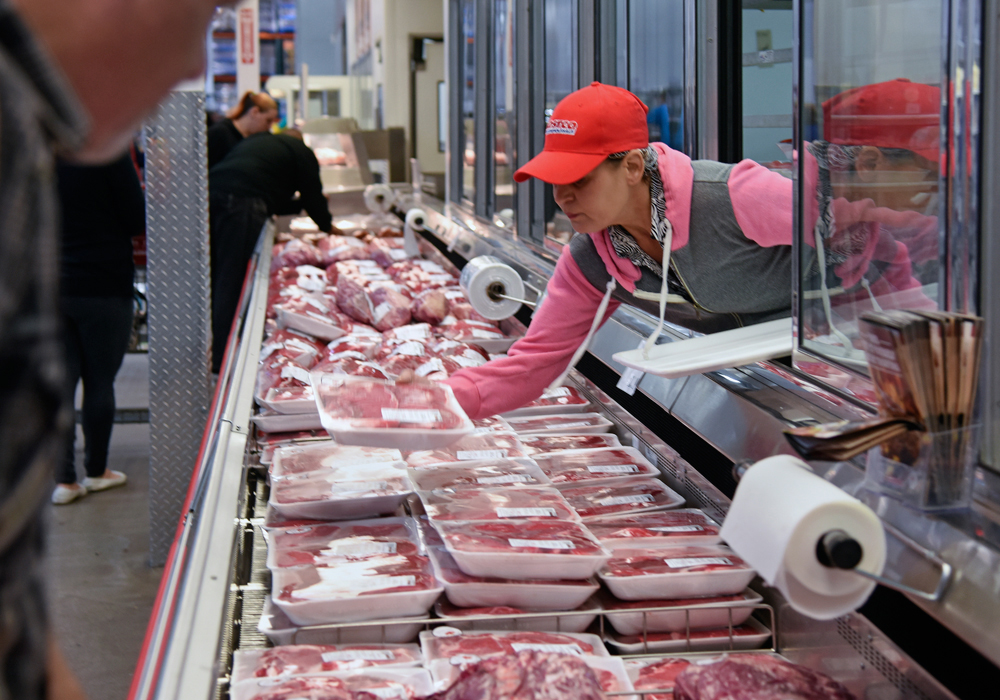Every year, I keep track of my favourite quotes from farmers and other folks in Canada’s ag industry.
Summer is not over, but there’s a clear leader in the clubhouse for 2023.
The quote comes from Nathan Phinney, president of the Canadian Cattle Association.
Read Also

High prices see cow-calf producers rushing to incorporate
Farm accountants are reporting a steady stream of cow-calf producers rushing to get their operations incorporated ahead of selling their calves this fall.
This summer, Phinney spoke about the federal government allowing the United Kingdom to join the Comprehensive and Progressive Trans Pacific Partnership trade deal. Beef and pork producers are extremely frustrated that the U.K. is joining the CPTPP because the Brits will not recognize the safety of Canada’s food system.
That stance has created a situation where the U.K. can ship pork and beef to Canada, but Canadian exporters can’t sell red meat to Britain. Despite the absurdity of this arrangement for a free trade deal, Canada has welcomed Britain into the CPTPP.
“Our government is moving ahead with it,” Phinney said. “We’re expected to just carry on and move forward. Well, that’s not happening.”
The CCA, along with the Canadian Pork Council and Canadian Meat Council, have vowed to fight the legislation that will officially allow Britain to become the 12th member of the CPTPP.
My favourite part of the Phinney quote is the last four words: “Well, that’s not happening.”
It signals that commodity groups and some farm organizations are taking a more assertive and aggressive stance on government policy.
They’re going to push back against the B.S.
The shift toward a louder and prouder farm lobby may have started last year. In 2022, Canadian farmers rebelled against a voluntary program to cut greenhouse gas emissions from nitrogen fertilizer.
As a reminder, the federal government has a target of cutting greenhouse gas emissions from fertilizer by 30 percent by 2030. The feds want to lower emissions because nitrous oxide is a potent greenhouse gas, as one kilogram of N20 released into the atmosphere is equivalent to 300 kg of CO2.
The emissions plan was (and still is) highly controversial.
Throughout 2022, producers, commodity groups and the ag industry reacted to the emission targets with anger and logic, saying it will hinder crop yields, cut farm income, increase the cost of food and is basically pointless because China is building 43 coal-fired power plants.
Producer hostility to the fertilizer emissions target has faded in 2023. It is like an annoying noise in the background, someone cutting branches with a chainsaw 500 metres from your house.
But British claims that Canada’s food system is unsafe and accusations that fertilizer is poisoning the planet are part of a much larger narrative.
For a decade or longer, activist groups, politicians and the media have blamed farmers for all the ills of society. Canadian producers are apparently guilty of:
- Routinely abusing livestock – https://humanecanada.ca/our-work/focus-areas/farmed-animals/realities-of-farming-in-canada/
- Using fossil fuel to operate tractors and combines, which is obviously evil. – https://www.nfu.ca/nfu-event/fossil-fuel-free-farming-solar-power-electric-tractors-and-the-future/
- Raising cattle that destroy the environment – https://www.theguardian.com/environment/2023/jul/20/vegan-diet-cuts-environmental-damage-climate-heating-emissions-study
- Cruelty to temporary foreign workers – https://www.thestar.com/opinion/editorials/we-need-to-end-the-abuse-of-temporary-foreign-workers/article_802551da-b65a-5c58-8b70-8d31731793e0.html
For years, many farm groups, industry associations and producers responded to such criticisms by shaking their heads and rolling their eyes. In many cases, the reaction was that city people don’t know anything about agriculture.
But that wasn’t the response to the feds’ plan to cut emissions from fertilizer.
And that wasn’t the response to British claims that Canada’s food safety system is inferior.
This recent push back, where farm groups and producers aggressively defend the ag industry, could represent a change in Canada’s farm community.
It’s unlikely that Canadian producers will soon become French farmers, who dump milk on the streets and drive tractors down the boulevards of Paris seemingly every month.
Still, a shift from “we agree to disagree” to “we’re not going to take it”, could be here to stay.
Contact robert.arnason@producer.com


















